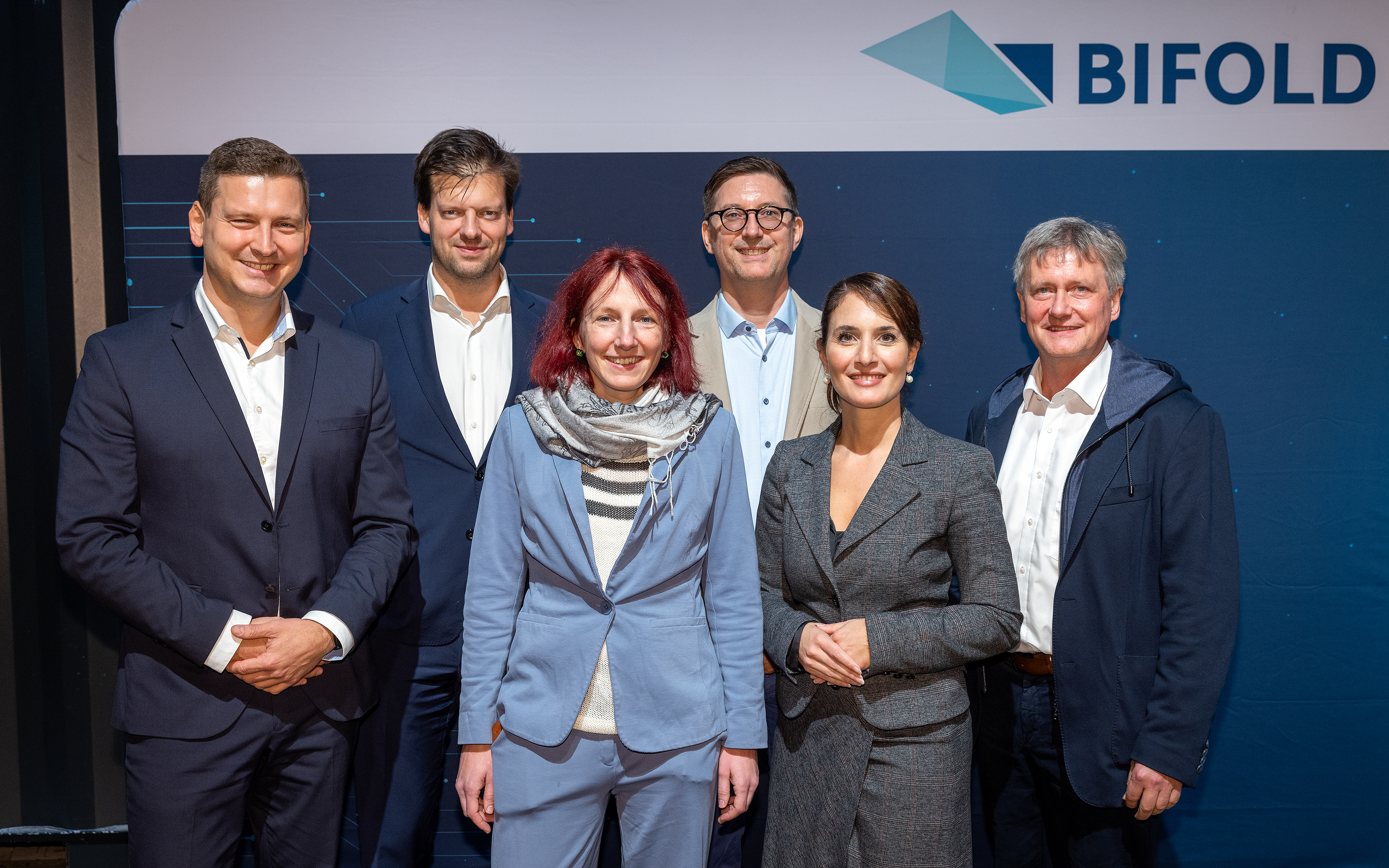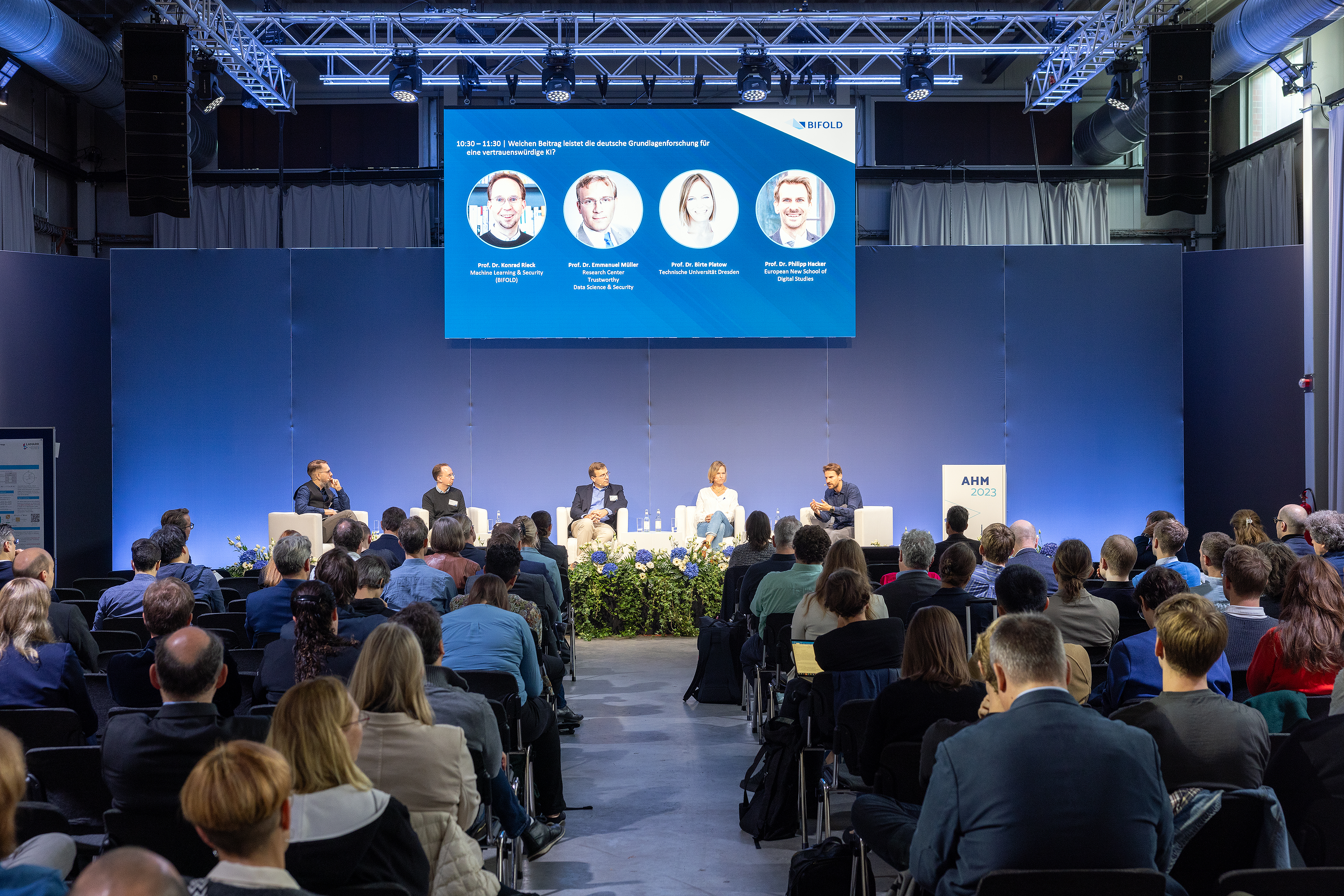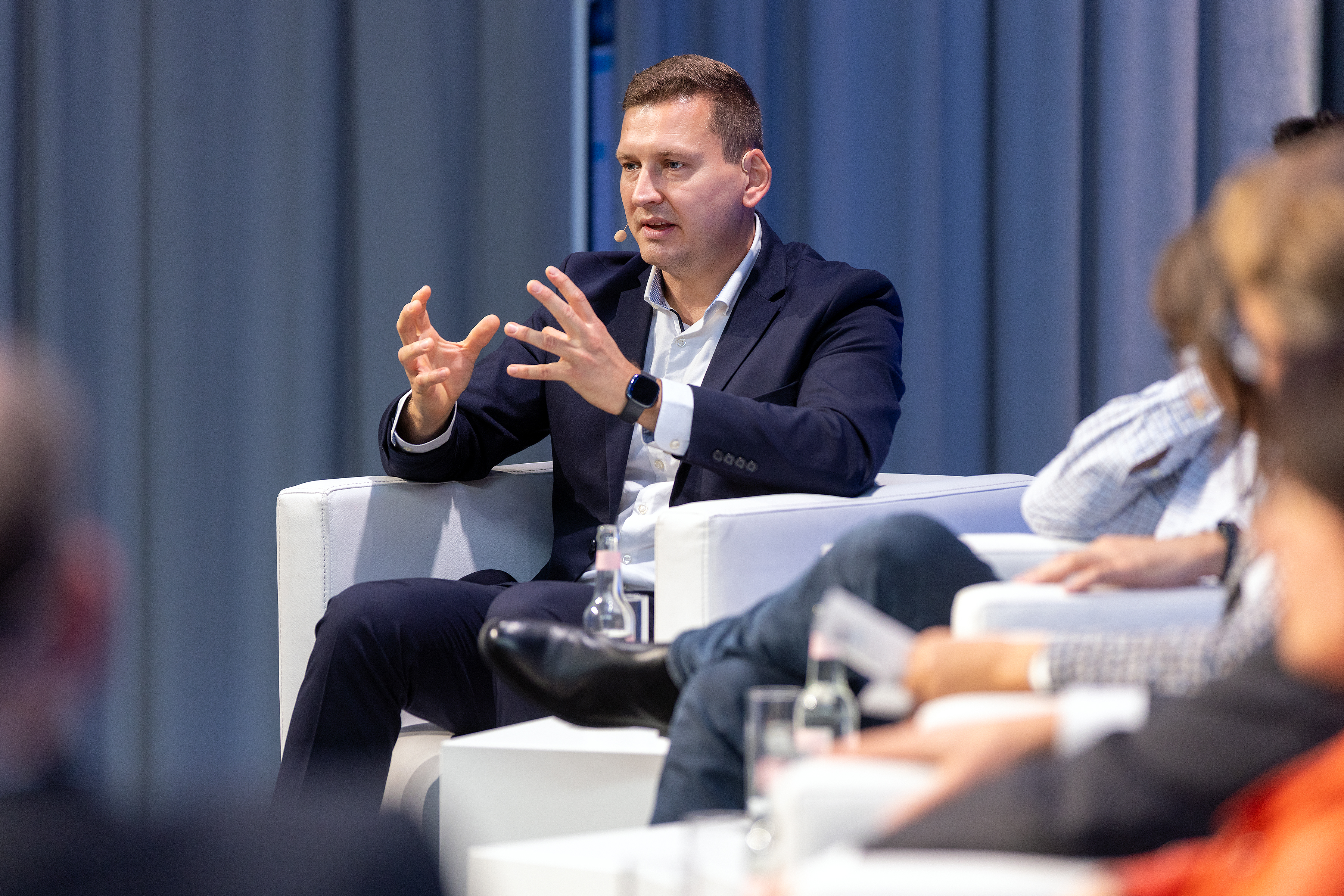All Hands Meeting 2023 of the AI Competence Centers in Berlin
On October 9th and 10th, 2023, the Berlin Institute for the Foundations of Learning and Data (BIFOLD) at TU Berlin invited scientists from the university AI competence centers (BIFOLD, ScaDS.AI Dresden/Leipzig, Lamarr Institute, Tübingen AI Center, and MCML) and the DFKI to Berlin to present and discuss the latest results of their research. As part of the Federal Government's AI strategy, the five university AI competence centers receive permanent funding by the federal government and their respective federal states since July 1, 2022. The university centers and the DFKI form a national network and are the foundation of the German AI ecosystem. In the context of this sustained funding, three new professorships have already been appointed in the centers, 17 professorships are currently in the appointment process, and over 15 junior research groups have been or are being established.

For a year now, the AI centers have benefited from the planning security provided by sustained funding. Mario Brandenburg, Parliamentary State Secretary at the Federal Ministry of Education and Research, visited the centers and the DFKI this summer to get a firsthand look at the progress and positive impacts. "Each center has its own strengths. We want to build on them and develop them into leading European institutions for AI research," emphasized Mario Brandenburg. The numbers of 20 new professorships and over 15 new junior research groups that have already been established or advertised in connection with the AI centers speak for themselves. These new professorships and research groups attract international AI researchers, strengthen German AI research as a whole, and contribute to the training of new AI experts.
In her welcoming address, NRW State Secretary Gonca Türkeli-Dehnert, representing the funding organizations, emphasized the importance of supporting internationally recognized cutting-edge research in Germany to shape the further development of AI on a global level. She highlighted the crucial role of the German AI competence centers, which conduct fundamental research at an international top level and train urgently needed AI experts: "With the AI competence centers, Germany is excellently positioned to further research in trustworthy AI for the benefit of humanity - and this at an international top level. The joint, long-term funding of the centers by the federal government and the federal states strengthens the connection between research, teaching, and transfer in the field of artificial intelligence and machine learning. This year's AI Symposium in Berlin impressively demonstrated that these agile and innovative collaborations have an impact on society. 'AI research made in Germany' is a quality seal for technology development worldwide."
Berlin relies on cooperation and synergies in the development of an integrated research space

Dr. Henry Marx, the Berlin State Secretary for Science and Research, emphasized the importance of the vibrant Berlin AI ecosystem, with its numerous actors and organizations that cooperate and promote mutual competition: "Berlin relies on cooperation and synergies in the development of an integrated research space. For the topic of AI, this means that excellent foundational research at BIFOLD, the Berlin University Alliance, and within the framework of the Einstein Center Digital Future is complemented by specific transfer offerings. These include the AI Entrepreneurship Center K.I.E.Z. for startups as well as the partnership between Charité - Universitätsmedizin Berlin and Humboldt-Universität zu Berlin with the KI-Campus platform."
"We are proud to be able to establish an AI competence center at TU Berlin in collaboration with our partner, Charité - Universitätsmedizin Berlin."
Prof. Dr. Geraldine Rauch, President of TU Berlin, emphasized the significant impact of establishing the BIFOLD AI competence center on the Berlin science location: "BIFOLD is by far the largest individual project of TU Berlin. We are proud to be able to establish an AI competence center at TU Berlin in collaboration with our partner, Charité - Universitätsmedizin Berlin. The new institute will shape the profile of TU Berlin and the entire science city of Berlin."
While October 9th was reserved for scientific exchange and networking among the centers, the AI Symposium on October 10th was explicitly aimed at the interested public. What technical prerequisites must AI have to be trustworthy? How can successful transfer of AI research into the economy be achieved? What measures can be taken to support and retain top AI researchers in Germany to shape the development of AI research? These and many other questions were discussed by computer scientists, ethicists, and politicians with experts from the business sector and representatives of society, along with over 250 guests at the BIFOLD AI Symposium.

AI currently permeates almost all aspects of life and assumes many safety-critical tasks in medicine, the economy, or transportation

Parliamentary State Secretary Mario Brandenburg (BMBF) initiated an intensive panel discussion on how AI research products, such as ChatGPT, are changing the transfer from research to application with his keynote speech. He emphasized the role of the AI centers as catalysts for transfer: "The AI centers should not only conduct excellent research but also contribute to making us better and faster at transferring it."
The question of how trustworthy AI technologies are or can become is highly relevant. AI currently permeates almost all aspects of life and assumes many safety-critical tasks in medicine, the economy, or transportation. In the panel "What contribution does German foundational research make to trustworthy AI?" BIFOLD Prof. Konrad Rieck addressed the challenges of developing AI: "Despite all the enthusiasm for research, we must ensure that AI becomes safe, fair, and trustworthy. This is a huge challenge for research, as we are still at the very beginning."
"These two days of intense exchange and stimulating discussions have demonstrated in the best sense the importance of the AI competence centers for the German AI ecosystem," summed up BIFOLD Director Prof. Dr. Volker Markl. "The scientific discussions provided a valuable glimpse beyond our own horizons and were an ideal opportunity, especially for young researchers, to gain new insights." "Equally important, however, was the subsequent discussion of the societal and political implications of this research. The discussions with the various experts on October 10th showed that as researchers, we must consider ethical and societal questions from the very beginning in AI research," added BIFOLD Director Prof. Dr. Klaus Robert Müller.

